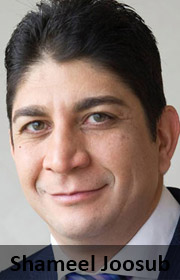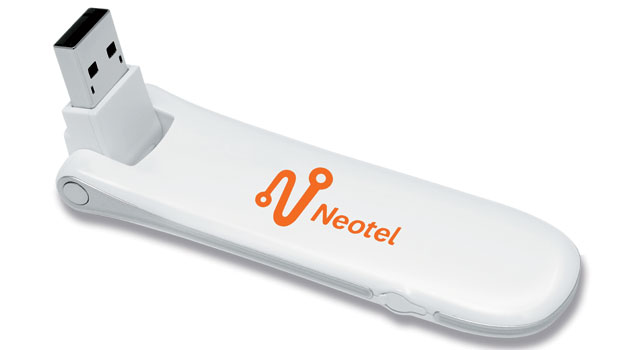 Public hearings hosted by telecommunications regulator Icasa are due to commence later this week to discuss Vodacom’s acquisition of Neotel. The final decision will have far-reaching consequences, with the potential either to accelerate or inhibit the roll-out of high-speed fibre connectivity and next-generation mobile services in South Africa. It’s therefore important that the parties involved focus on the positive impact this transaction would bring to the consumer and to the country as a whole.
Public hearings hosted by telecommunications regulator Icasa are due to commence later this week to discuss Vodacom’s acquisition of Neotel. The final decision will have far-reaching consequences, with the potential either to accelerate or inhibit the roll-out of high-speed fibre connectivity and next-generation mobile services in South Africa. It’s therefore important that the parties involved focus on the positive impact this transaction would bring to the consumer and to the country as a whole.
It might help to start with the basics of the transaction in question. In May last year, Vodacom announced it had reached an agreement to purchase 100% of Neotel for an enterprise value of R7bn. On the face of it, that sounds a lot like a big company buying out a smaller competitor, which can’t be good for competition or the consumer. Right? Well, no.
Vodacom primarily supplies mobile services to consumers, while Neotel’s bread and butter is supplying fixed-line connectivity to businesses. The key thing that both companies have in common is a network of fibre-optic transmission cables — in Vodacom’s case the fibre connects our mobile base stations, and in Neotel’s case the fibre connects businesses.
Combining these two companies allows Vodacom to focus on getting fibre connections to more homes and businesses. The end result will be an acceleration of the roll-out of fibre-to-the-home (FTTH) and fibre-to-the-business (FTTB) solutions. This is exactly what government has highlighted as one of its key objectives for national broadband in South Africa. Furthermore, the combined entity would also be able to supply enhanced business services which would provide a strong contender to the incumbent, Telkom.
This transaction would be good for competition, good for businesses, good for the consumer and, crucially, would support government in its goal to get South Africa connected with high-speed broadband. So why are there objections to the deal?
Some of the objections raised thus far are interesting in that they highlight that by acquiring Neotel, Vodacom will be able to roll out next-generation mobile services faster than would otherwise be possible. It was even conceded in a competitor’s submission to the regulator that due to this transaction “consumers will benefit from the earlier and cheaper availability of 4G/LTE in South Africa”.
Rather than focusing on the benefit to consumers, opposition to the deal is based on a concern that by combining Vodacom and Neotel and accelerating the roll-out of next-generation services, this would give Vodacom a first-mover advantage. I don’t want to dwell on negative issues because there is far too much to talk about in relation to this deal that is good for South Africa, but I would like to tackle this one point. The implication of this is that no one operator can progress unless all operators are ready to progress equally and that the whole industry moves in lock-step. Imagine that applied to the airline industry — no airline would be allowed to fly Airbus A380 jets to Johannesburg unless they all did. This view will put the consumer last, not first.
Coming back to the logic behind the deal, Neotel is a good company with great people, but it needs considerable investment to be a serious competitor in the fixed-line business. It was this understanding which caused the owners of Neotel to run a sale process.
Vodacom was successful in that sale process because it is willing to pay the purchase price, confident in achieving synergies, and because it realises the potential of being able to play a meaningful role in fixed-line communications.
On top of this, by stepping up to the plate and pledging to put significant investment into Neotel, Vodacom is doing something that no other company has offered to do. By combining these companies and increasing investment, we’ll be able to accelerate the roll-out of fibre-based broadband services to customers. Yes, those services will compete with those offered by other companies and yes this will over time drive down the cost to communicate which is perhaps why there is opposition to the deal, but that can only be a positive for the consumer.

More importantly, this deal talks to the competitiveness of the nation as a whole. In a recent report by the GSMA, mobile data usage in sub-Saharan Africa was predicted to go from under 40 petabytes per month (1PB is a million gigabytes) in 2013 to approaching 800PB per month in 2019. That’s a 20-fold increase in data usage over just six years. While mobile data usage is booming, fixed line connections are a major bottleneck. To catch up with developed economies we need to take fixed broadband penetration in South Africa from the current level of approximately 7% of all households to around 75%, which is the case in the US, Japan and major European economies. It’ll take investment running into tens of billions of rand to close this gap. Vodacom has clearly demonstrated that it is willing and able to put major investment into South Africa, spending in the region of R8,5bn in our current financial year and looking to spend a similar amount next year. Once approved, we can get on with investing meaningfully in Neotel as well. With this in mind, we don’t think that it’s an exaggeration to say that this transaction is crucial to the future competitiveness of the nation, as businesses and ultimately jobs will migrate to whichever countries are able to offer the best infrastructure.
On the subject of South Africa’s competitiveness, Kenyan mobile operator Safaricom announced in December the launch of commercial LTE-Advanced services that can deliver speeds of up to 300Mbit/s. What this means is that Kenya has true 4G mobile services with the potential to operate at speeds many times that of the fastest LTE services in South Africa. The irony is that South Africa could have been there first. We announced in November that we’d completed the investment programme to upgrade all of our base station radio equipment to “4G ready”, and the only thing that is holding us back is access to spectrum. It’s clear that as a company and as an industry we need to keep moving if we’re going to keep up with the pace of technological change.
Pulling it all together, Vodacom is simply asking that it is allowed to see through the acquisition of Neotel in order to roll out services and increase competition in the sector. The simple fact is that if the transaction is approved, our ambition would be to roll out more than a million fibre connections within a reasonable timeframe. That’s more than the number of old-technology ADSL lines that the incumbent fixed-line operator has managed to deliver in the last 20 years.
Government has set a goal of delivering 50% broadband coverage in all households by 2020 and 100% by 2030. The decision flowing from Icasa’s hearings this week will have a concrete impact on whether we are able to play our part in helping achieve this, and in so doing have an impact on the competitiveness of our country as a whole.
- Shameel Joosub is group CEO of Vodacom
- This column was first published in Business Day




